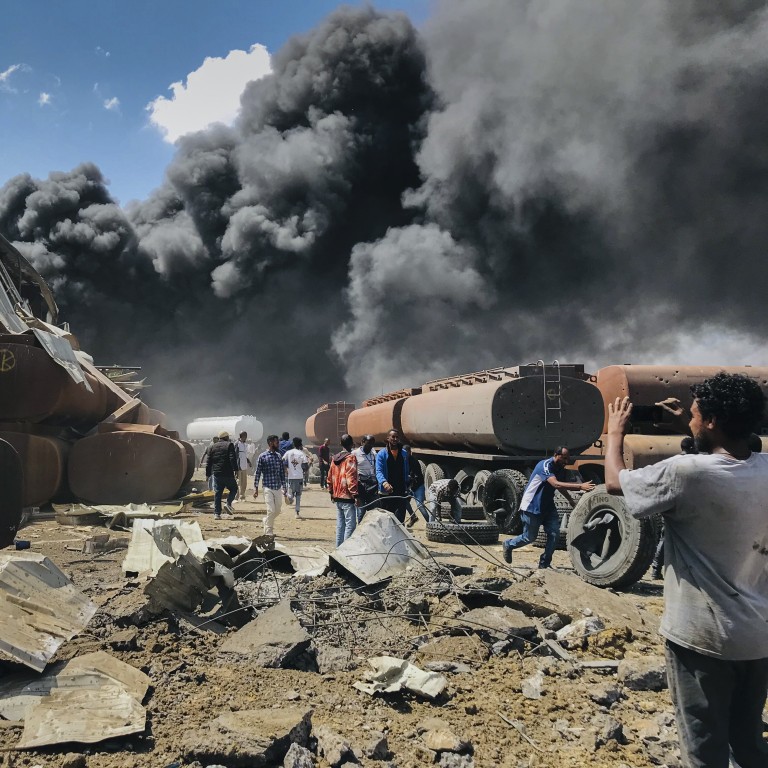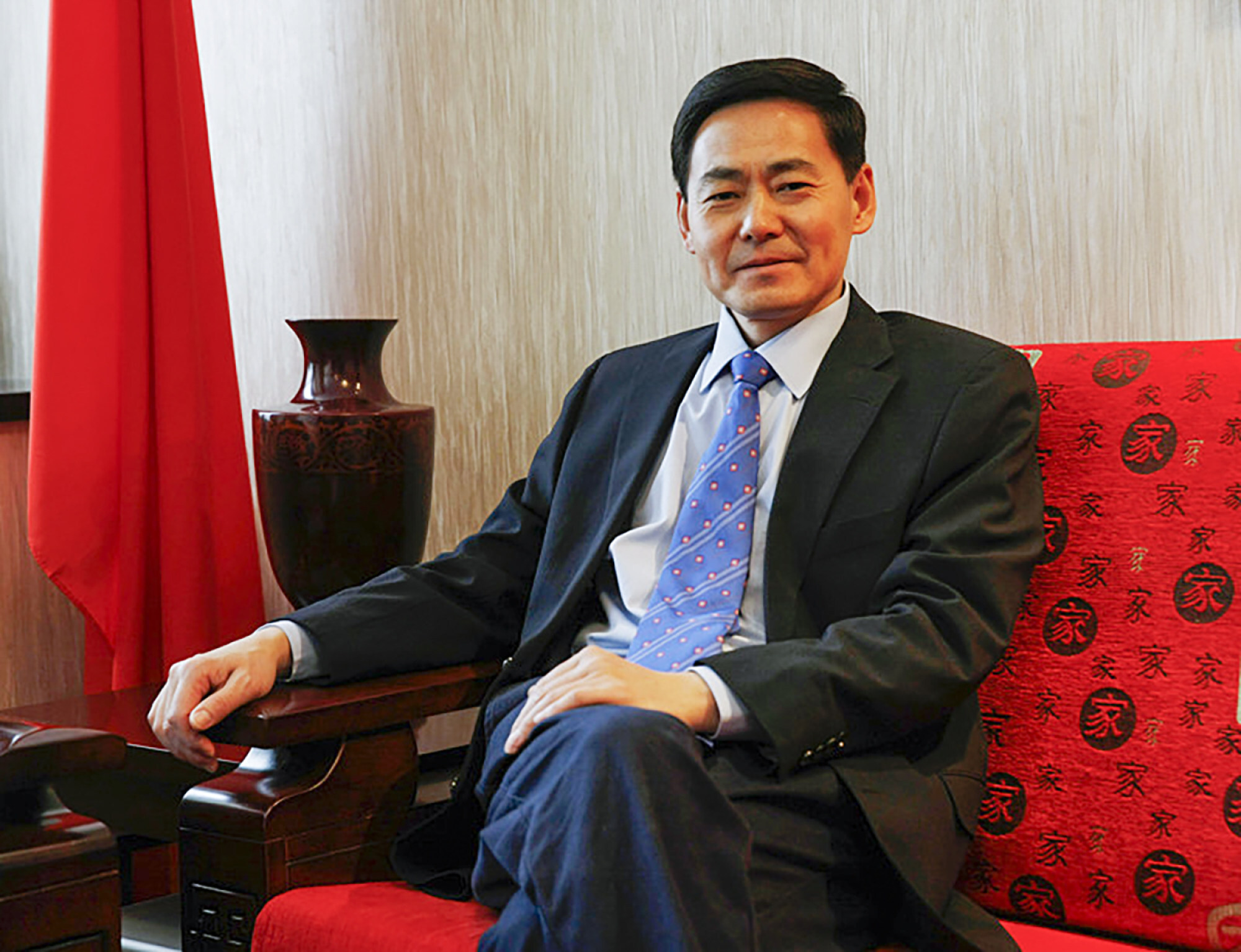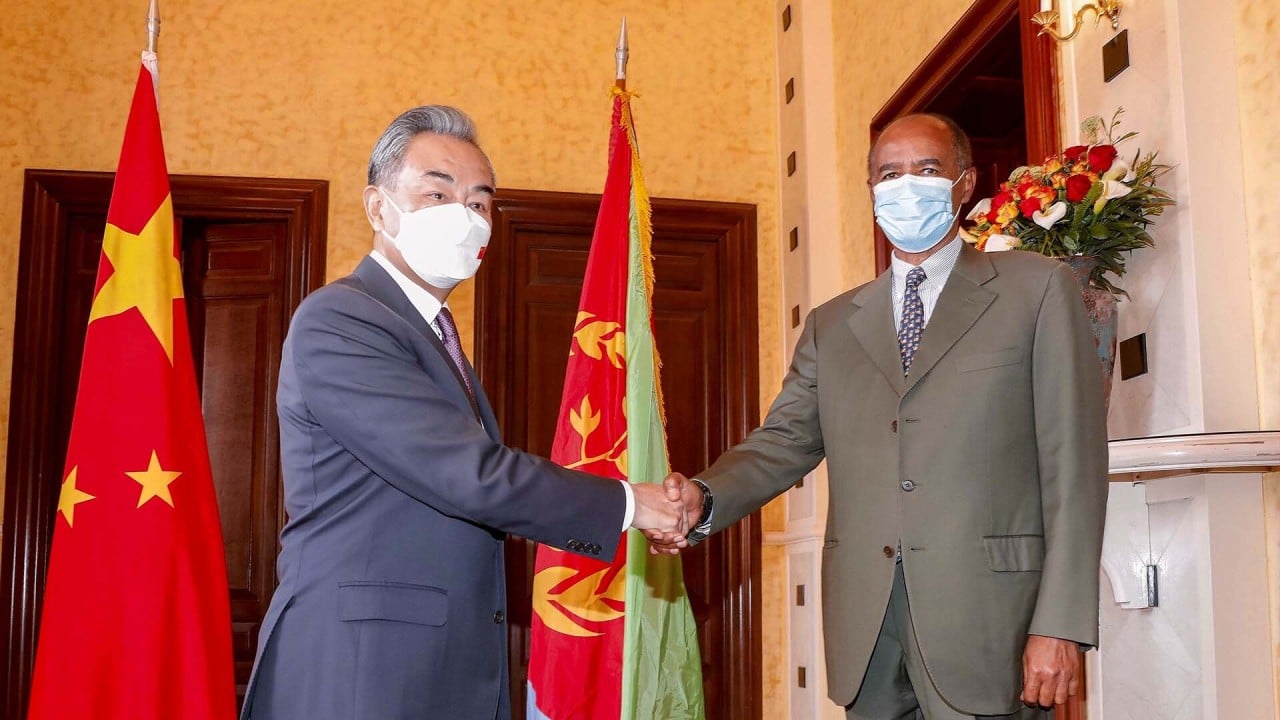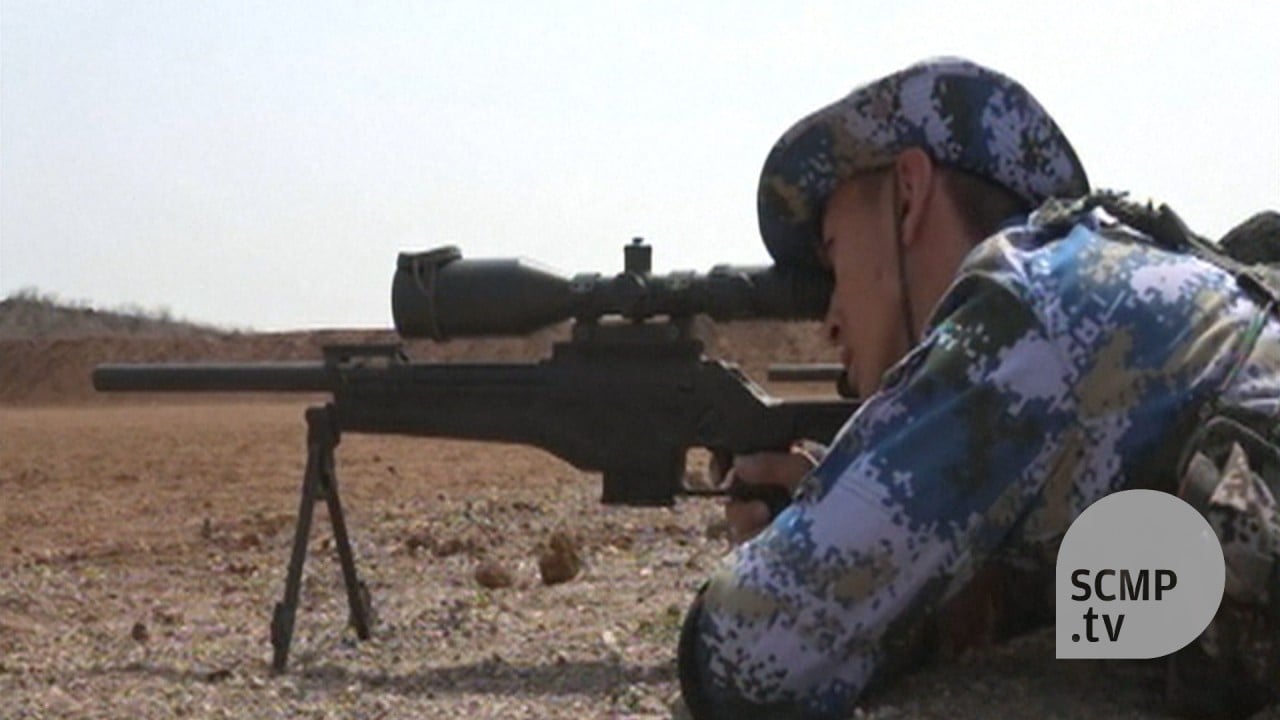
Can China play the role of peacemaker in the Middle East and Horn of Africa?
- Beijing has stepped up its diplomatic efforts in both regions, which are vital to its strategic interests and investments
- The country’s long-standing policy of non-interference has limited its involvement, but some observers say in practice that means it ends up backing whoever is in power
China has started a diplomatic drive to promote its plans to end the enduring conflicts in the Middle East and Horn of Africa, including an eight-nation peace conference in East Africa.
The Middle East is lately one of the biggest destinations for Chinese development lending, with most of the money going into the rebuilding of infrastructure that had been destroyed in years of war.
Beijing is planning the first peace conference in the region to provide a platform for the eight nations concerned to resolve conflicts and address the lingering instability in the region. It said last weekend the Ethiopia and Kenya had agreed to host talks.
China vows support for Islamic wisdom as US retreats from Middle East
In Kenya, Xue promised that China would “send engineers and scientists to help tackle poverty and infrastructure problems” and “not weapons” – an apparent swipe at the United States which it accuses of interfering in the internal affairs of other countries such as Ethiopia.
The Horn of Africa has long been the site of civil wars, Islamist insurgencies and military coups threatening Chinese investments, most recently in Ethiopia, Eritrea and Somalia. All three were on Xue’s travel list, along with Djibouti, Kenya, Uganda and South Sudan.
“This region also has a lot of issues that cause a lot of conflicts, be it border issues, ethnic conflicts or religious conflicts. We think that these issues have to be resolved, otherwise you cannot have proper development,” Xue said.
“China wants to play a role in this area to promote security, development and governance in this region.”

Observers said that China tended to avoid a hands-on approach and preferred to play a supporting role in bringing about peace by providing a facilitating environment. This goes hand in hand with its belief in state sovereignty where local actors should be the ones leading the drive to find local solutions, according to Benjamin Barton, an assistant professor at the University of Nottingham’s Malaysia campus.
He said Beijing would always tend to back the government in power in a given conflict, although there had been signs of China engaging with the opposition in some instances, while Western countries tended to side with the party whose human and democratic rights were being infringed.
Last week, Zhai visited Israel, Jordan, Egypt, Saudi Arabia, Palestine and Sudan where he discussed “bilateral relations, the situation in the Middle East, the Palestinian question … and the Syrian issue and other international and regional hotspot issues”.
He met the secretary general of the Arab League Ahmed Aboul Gheit in Cairo and Palestinian President Mahmoud Abbas in Ramallah.
Horn of Africa envoy advances China’s push for peace in strategic region
In a meeting with the chairman of the Israel-China parliamentary friendship group, Tzachi Hanegbi on March 9, he urged the Israelis and Palestinians to resume talks to agree a two-state solution, adding that without an agreement, Israel would find it harder to make peace with Arab nations.
Barton said traditionally, China had preferred to adopt a low profile and relatively passive stance on conflict management in the Global South.
“It tended to somewhat hide behind the position of African or Middle Eastern states/regional organisations, call for a truce among the warring parties and talk up the need for economic or developmental solutions to the political, social and civil origins of conflicts,” Barton said.
He said in the few cases where China did stray from this stance such as in the Darfur conflict between 2003 and 2006, it was largely as a response to pressure emanating from the international community over its perceived inertia.
Barton said that under President Xi Jinping, China had adopted a far more proactive approach, including offers to host and preside over peace talks, mostly in Africa.
This was the case with the civil war in South Sudan in 2013 where Chinese negotiators played a considerable role in securing an initial ceasefire. China has offered similar mediation in the long-standing conflict involving Ethiopia and Eritrea.
Beijing has recently made “a strong shift” to the Middle East and the Arab world as the US scales back its profile, investing billions of dollars in reconstruction.

Last year Chinese investment in the Middle East grew by about 360 per cent and construction engagement by 116 per cent compared with 2020, making the region one of the biggest recipients of Chinese money in 2021, according to a recent report by the Green Finance and Development Centre at Shanghai’s Fudan University.
Ibrahim Al-Assil, a senior fellow at the Middle East Institute, said that for China, the involvement in the Middle East, the source of 45 per cent of its oil imports, was an opportunity and a necessity.
“The trend is clear, the region will keep rising in significance for China’s global ambitions,” Al-Assil said.
“To secure those [oil] imports, China needs more leverage in the region and deeper connections, on the economic and political level.”
Beijing imports most of its oil from Saudi Arabia and Russia – and gets some from Iran despite it being under sanctions by the US.
John Calabrese, head of the Middle East-Asia Project at American University in Washington, said China’s standard diplomatic practice was conflict management rather than conflict resolution.
He said the former reflected “Beijing’s cautious approach to hostilities between countries with which it seeks to maintain constructive relations”, while the latter represented a more proactive posture where it risked being accused of taking sides or seeing the talks fail.
Liselotte Odgaard, a professor at the Norwegian Institute for Defence Studies and senior fellow at Hudson Institute, said China had stated it would stick to a policy of non-interference and let Africans follow their historical path.
“In reality China is supporting authoritarian regimes and they interfere, but they do it behind closed doors rather than in public, so non-interference in real terms has been a fiction for a long time,” Odgaard said.
Odgaard said one reason being that China did not engage sufficiently because it was worried about getting its hands dirty.
China, Iran, Russia conduct joint naval drills as US tensions rise
“China’s idea of non-interference usually involves not getting seriously involved by taking clear sides, which means they don’t have a good conflict resolution strategy,” Odgaard said.
Barton of the University of Nottingham’s Malaysia campus, said China did not have a significant track record of serving as a mediator in either region, largely because of its adherence to the non-interference principle.
Although Xi wanted China to feature more prominently internationally in conflict mediation there was not much to show for it yet, he said.
He gave the example of the Middle East, where Xi put forward a “four-point plan” of “three stops” and “three explorations” in 2013 to end the conflict between the Israelis and Palestinians.




